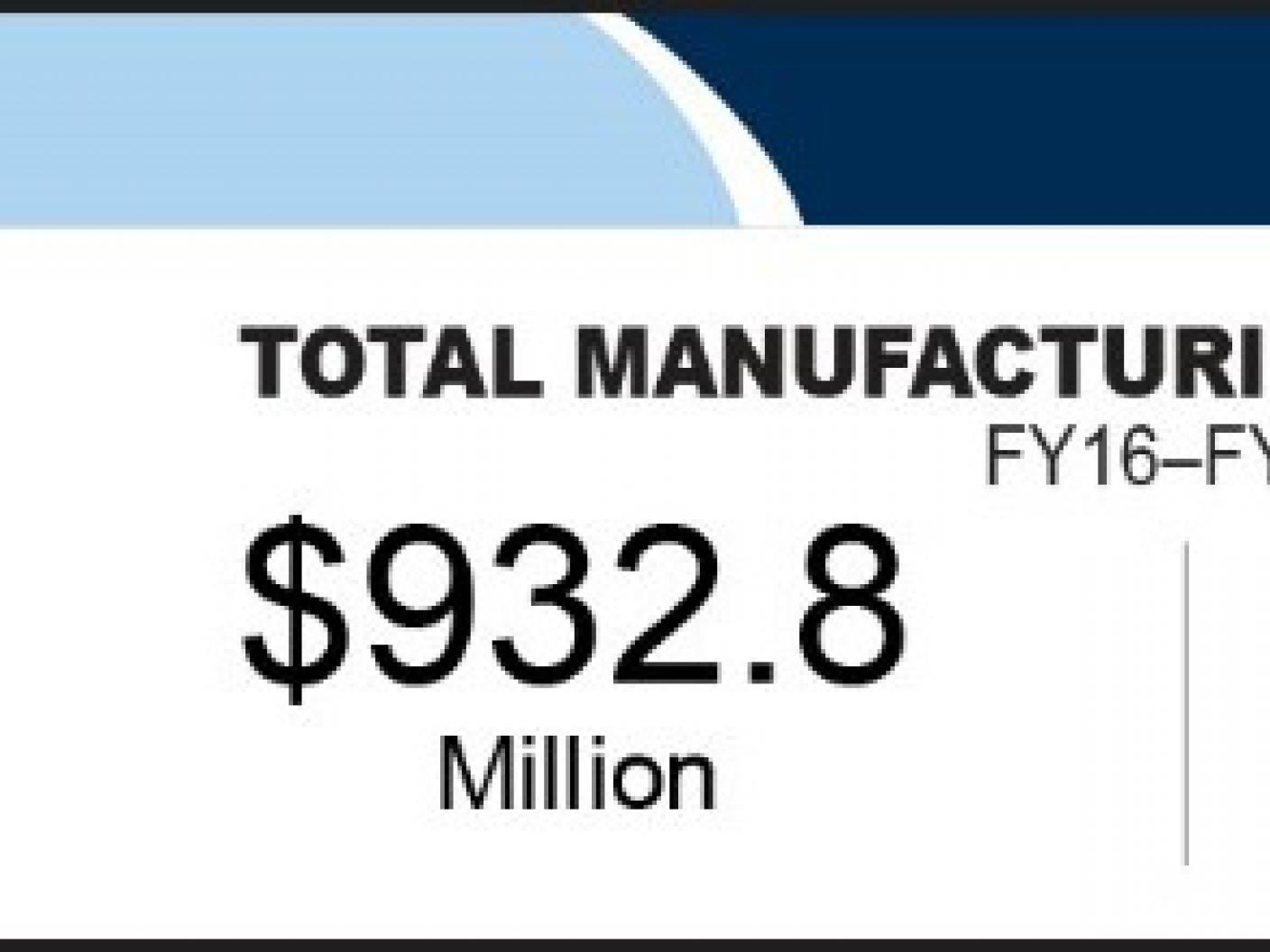U.S. Economic Development Administration Investments Help Communities Across the Nation Boost Manufacturing Capacity

Manufacturing is an important component of the United States economy and one of the Economic Development Administration (EDA)’s top investment priorities. EDA is proud to support community-led manufacturing strategies throughout the country through strategic investments. Over the past five years, EDA has invested more than $930 million in more than 700 projects that support manufacturing.
EDA’s investments not only include direct benefit to the manufacturing industry, but also focus on planning, research, technical assistance, access to capital, and workforce development.
Each of EDA’s six regional offices are supporting local manufacturing. Examples of projects that EDA has invested in across the nation include:
Chicago Regional Office
Manufacturing a product can be a challenge for an entrepreneur who may not be equipped with the machinery or materials. The Purdue University Northwest Commercialization and Manufacturing Excellence Center (CMEC) received a $386,316 EDA investment to foster manufacturing-related entrepreneurship and workforce development for an innovation economy in the region. One entrepreneur credits the program with helping to take her invention of an automated communion server to reality.
Austin Regional Office
A formerly-vacant manufacturing facility in Sharp County, Arkansas is renovated and rebuilt thanks in part to a $3 million EDA investment. The renovated 277,000 square-foot manufacturing building is expected to attract new manufacturing industries and private investments to the rural community, bringing hundreds of jobs to the region.
Denver Regional Office
In St. Louis, Missouri, The Flag Loft has been steadily manufacturing flags, banners, and fabric products for customers across the country. Customers include corporations, municipalities, colleges, high schools, professional sports teams, and the hotel industry. The company continued to manufacture during the pandemic, until a ‘work horse’ machine in their factory failed and the business needed to buy a replacement. Assistance came through a $20,000 loan acquired through an EDA-capitalized Revolving Loan Fund (RLF).
Atlanta Regional Office
North Carolina has a vibrant history in textile manufacturing, dating back decades, and a local program is ensuring small businesses today can continue that history. The Manufacturing Solutions Center (MSC) at Catawba Valley Community College, supports businesses looking to manufacture their textiles through material sourcing, product development, and production runs. The college was awarded a $750,000 EDA investment to leverage resources for cutting-edge innovation and entrepreneurship at MSC.
Philadelphia Regional Office
An upstate New York accelerator is helping entrepreneurs move their products from an idea to production. The Prototype-to-Production Hardware Accelerator program is located at Rev: Ithaca Startup Works, an incubator supported by a $750,000 grant from EDA. The program supports entrepreneurs who aim to scale their business, manufacture their products, and –create new jobs and spur economic growth in Upstate New York.
Seattle Regional Office
When the COVID-19 pandemic hit, the Los Angeles County Development Authority (LACDA), an EDA-designated Economic Development District, got to work helping stabilize small businesses in America’s largest county. In Southern California, manufacturing and entertainment intersect and one of the enterprises that was able to take advantage of an EDA-capitalized Revolving Loan Fund (RLF) operated by LACDA has a foot firmly planted in each sector. The Creature Company is a Palmdale, California-based manufacturer of animatronics, puppets and special effects makeup. Established in 2008 to provide digital manufacturing services to the movie and television industries, The Creature Company tapped a LACDA RLF loan to access working capital for its operations. “The banks were overwhelmed because they are all Paycheck Protection Program conduits,” explained Carolina Roma of LACDA. “A lot of our folks got lost in the PPP world and that’s why they ended up coming to us.”
Under President Biden’s American Rescue Plan Act, EDA was allocated an unprecedented $3 billion in supplemental funding to assist communities nationwide in their efforts to build back better by accelerating the economic recovery from the pandemic and building local economies that will be resilient to future economic shocks.
With this historic funding, we are taking innovative new approaches to ensure that our investments have the greatest economic impact.
Our execution is focused on:
- Bringing back the American workforce and industries that have been hardest hit, such as travel and tourism and manufacturing, through programs that support economic growth and diversification, creating talent pipelines to address industry needs, and fostering higher-skill, higher-wage job opportunities for all.
- Capitalizing on American ingenuity to build regions of the future by focusing on innovation-led economic development, including planning, infrastructure, workforce development, and business financing.
- Pursuing a comprehensive approach to advancing equity by focusing on populations and underserved communities that have been denied a full opportunity to participate in aspects of economic prosperity.
EDA’s American Rescue Plan Good Jobs Challenge, for example, aims to build and strengthen systems that address challenges that American workers face, head on.
Through the Challenge, EDA is allocating $500 million for collaborative training efforts, with a focus on women, people of color, and historically underserved communities.
EDA’s grantees will support workers in completing training programs and earning good-paying jobs by providing services that they need to succeed, including childcare and transportation.
This program is designed to meet the workforce needs of today—encouraging community organizations to partner with employers to create talent pipelines that meet industry needs and executing programs that will create a concrete pathway for American workers to earn good-paying jobs.
To read more on how EDA investments support the manufacturing industry, read our success stories.
